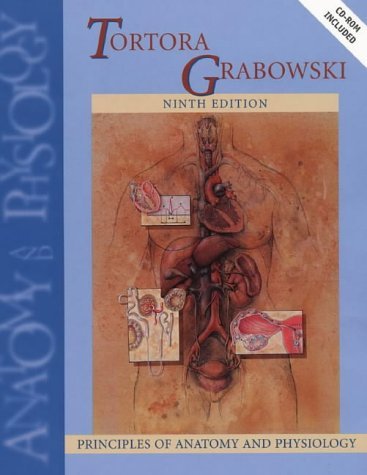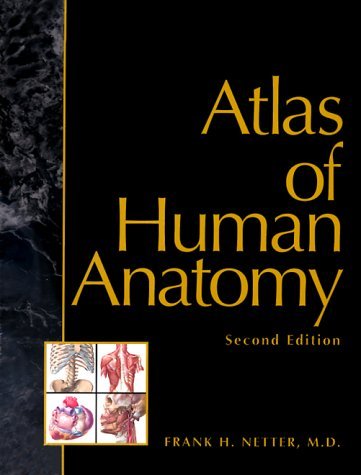Out of curiosity, I flicked open one of my old undergrad physiology text books. And I noticed something I had never noticed before. It doesn’t contain any references; not a single one! That seems curious for a university science text.

It does, however, contain a long list of contributors; experts who had been consulted. In other words, this scientific text is largely a matter of opinion, not facts that can be traced to source.
Alright, we could theoretically ask those experts where they got their information. Were this actually practicable, no doubt we would get a range of provenance, from scientific papers, to their own earlier training, to consensus, to ‘generally accepted’, to ‘that’s how I understand it anyway’, to ‘well, not sure where I picked it up, but that’s what we’ve always believed’. Of course some of it will be solid, we just can’t be sure how much.
That was quite a surprise for something that is supposed to be foundational to our understanding of physiology, onto which future learning and research is to be attached. How can we be sure that any particular fact among the thousands of facts it contains is true? And how true? Exact or approximate? Always or occasionally? Best guess or proven and repeatable? Perhaps some of the facts are more certain than others. Without references it all boils down to ‘this is what is believed’.
What effect does this have on future medical practice and research?
Texts like this form the foundation for an entire house of knowledge. What I have learned is that with all biological sciences, different opinions are available. In other words, all of medical science could be barking up many wrong trees, and might have been doing so for generations. There are good factual reasons for thinking this might be so.
There was always something comforting about it though.
In the world of the modern medical text book, there is a sort of machine-like precision with which the body works. Like a clockwork mechanism, you don’t need to worry about it unless it breaks.
Medical science has become a sort of utopia in which physiology just happens, unless pathology just happens, at which stage the body’s natural response is to take drugs. Everything is under control, yet beyond our control at the same time. All reasons for failure are pointed back at the patient, one way or another. Genetic, ageing, autoimmune, viral, idiopathic; all reasons why medicine can’t help. But at least you can comfort yourself that brilliant people are on it.
It appears as if the conditions for physiology to work are just there, they don’t depend on real world considerations of health, like minimising stress and optimising resources. Whilst there is some sense of the interdependence of systems, the academic attempt to separate everything out obscures the extent to which everything depends on everything else; and that when one thing changes, everything changes.
But in the reality of the natural healer, the body is always dealing with stress of one kind or another, in varying degrees. And the responses to a particular kind of stress are not absolute: there is a whole range of adaptations, short term and long term, to help us get through. And they affect both the gross and microscopic behaviour of every part of the body in countless ways, known and unknown. And furthermore, every response is individual. There is a system of multi-dimensional dynamic stability, that can never actually settle to a point of static equilibirum.
If somebody kicks you in the shin, it affects every cell in the body – immediately. And if somebody gives you bad news, it also affects every cell in your body – immediately.
And the same news to another person will affect them in a totally different way. To them it may be good news. It can be whispered or shouted, but the response is not dependent on the volume. So, some responses are not dose-dependent, they are signal dependent: and that is the basis, of, say, homoeopathy. Not only that, you must be able to receive the signal: if you don’t speak the language the news might have no effect at all.
But the point is, we can’t just draw nice pictures of the cell as if it were simply a machine, and assume it works always the same, whether we are running for a bus, watching television, eating an ice cream or jumping into a swimming pool. We can’t assume that it will work the same after a year of training for a marathon, or that it will revert once the event is over.
Then there is pathology: that is what happens when the body just ‘goes wrong’. And according to the scriptures, that is what happens when one is afflicted by a disease.
And so there is something very definitely missing from the medico-centric understanding of physiology and pathology. In that world, disease is something that just lands upon us through one mechanism or another. The body is essentially healthy, and disease just attaches itself, making it unhealthy. Flip that around, if we can drive away the pathology, the healthy body will be restored. This is essentially how heroic medicine has viewed healing for at least 150 years. It sounds wonderful in principle, and superficially it makes sense, because it accords with our experience of machines.
But we are not machines. And whilst humans are very good at fixing machines, most doctors these days are lousy at making sick people healthy. Living stuff is very different in a great many ways. It is a view that completely disregards the fact that disease is an adaptation to stress. It is caused by our actions, habits and environment, but it arises out of us. It is not a separate thing, and we cannot be diseased if we are healthy.
As Florence Nightingale wrote, there are no diseases, only disease conditions.
There is no pathology: there is physiology doing extraordinary things under extraordinary conditions (usually unnatural). And always the aim is survival. When a body is diseased, there is no ‘thing’ that that has attached itself, that can be driven away, or detached form the body that will thereby unchain the health within. The body is not going wrong, it is trying to go right.
Henry Lindlahr wrote that there is only one cause of disease; breaking nature’s laws.
The only solution to disease is health. To make disease ‘go away’, one has to remove the stresses upon the body and deal with the ways it has adapted. If one does not do that, then the body will simply keep adapting and adapting until it is exhausted, no matter how many brilliant palliative solutions are applied.
It is not natural healers who believe in magic, it is doctors!
Magical cures and miracles are for those who think health comes in drugs. The very word pharmacy means witchcraft! The promise of the druggists is that they can make disease go away and restore the body to health – without the patient having to change anything in their life. The impossibility of this promise should be obvious. You cannot poison sick people and expect them to become healthy a result.
Only in natural healing is it accepted that in order to heal, something must change. And even more than that, natural healers cannot heal anything: healing is what the body does, once it is given a chance. At first this comes as depressing news: it means we must make an effort. But it is actually very empowering: it means the patient does not need to find the most brilliant doctor in the world, or wait for some breakthrough. The power to be well is in their own hands.
And this also gives us a way to tell if a therapy is valid or not. Generally speaking, if the patient depends on therapy, they are not well, they are using therapy as a crutch, in order to not have to change. And eventually they will become sicker this way.
When the patient is genuinely healing, they will become less and less dependent on therapy as time goes by.
And this brings me to my own definition of health: it means independence.
Having mused on all that, I looked at a couple of other mainstay medical texts, and found the same thing: zero or minimal source referencing. These tomes are definitive descriptions of what is going on in somebody’s head, and not necessarily of what is going on inside the human body. Lindlahr wrote about the dangers of an anthropomorphic understanding of physiological systems, in particular the immune system.


Of course, most of my old text books are now out of date. I would not be able to sell them to a student. Only the latest editions are allowed.
So, now that they are out of date, what exactly has changed? The human body hasn’t changed. So, if the current understanding means that these books are now wrong, then weren’t they always wrong? And the current books will likely be wrong in ten years, so aren’t they wrong now?
Out of date means wrong! And wrong in some other time is wrong now!
In contrast, old natural healing books never go out of date. Being principles-based, they do not depend for disputable ‘facts’ for understanding, which will become old understanding based on out of date knowledge before very long. They are based on ancient wisdom and observation handed down over many generations – that which has survived – and not on the latest fashions for sale. Facts can change in an instant with one new piece of research.
And so the emphasis in natural healing texts is on principles, the patterns that only emerge over time, with experience and patience, and that remain solid even as facts come and go. Hence old natural healing texts are not blown on the winds of the latest research, but tap into the enduring ways of the universe.
In short, knowledge of nature’s patterns matures, it does not go ‘out of date’.
Summer follows winter. This is a pattern that humans can use, and which will never change. Natural healers exploit ideas on that level. If we throw that out in the quest for ‘objectivity’, we will forever be chasing phantoms. Facts are useful, but because of their fickle nature they should not have primacy. They also lead us towards the fallacy of one right answer, which will soon become the wrong answer. Principles lead us to a range of possibilities, and help us see the bigger picture.
What this all reminds me of is my first day of university. Our chemistry lecturer walked up to the microphone and paused. Once he had the attention of the 200 or so excited freshmen assembled in the large lecture theatre, he finally said:
“During your time here you are going to be taught nothing but lies. Everything you were taught at school about science is lies. Here you will learn some better lies. But they are not as good as the lies you will learn after you graduate”.
~